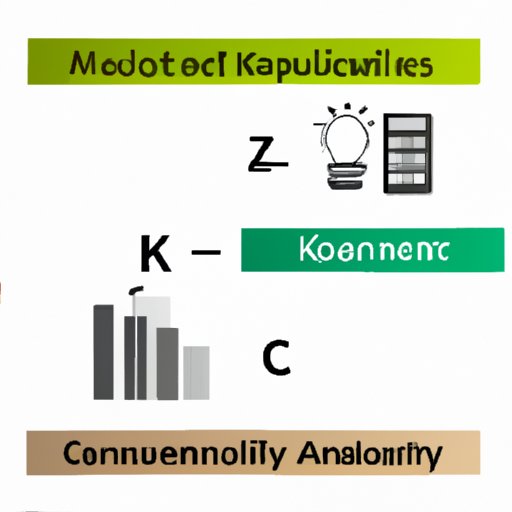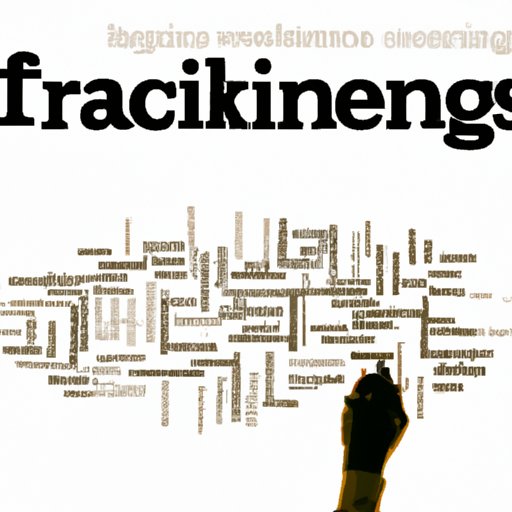Introduction
Finance and accounting are two of the most important aspects of business operations. Both involve analyzing financial data, making decisions, and managing resources. But what is the difference between the two fields? And is finance easier than accounting?
Finance is a broad field that includes financial planning, budgeting, cash flow management, investment analysis, and other areas. Accounting is focused more narrowly on recording and reporting financial transactions. While they overlap in many ways, there are also some distinct differences between the two.

Comparison of Skills and Knowledge Required for Success in Finance and Accounting
To be successful in either finance or accounting, you need to have strong analytical skills. You must be able to interpret financial data and draw accurate conclusions from it. You also need a solid understanding of financial principles, such as balance sheets and cash flow statements. Additionally, knowledge of taxation laws is essential for both finance and accounting professionals.
Computer proficiency is also important in both fields. You need to be able to use software programs to track financial data and generate reports. Finally, communication skills are key in both finance and accounting, as you will need to be able to present your findings to others.

Examining the Key Areas in Which Finance Differs from Accounting
The main difference between finance and accounting is the focus. Accounting is mainly concerned with recording and reporting financial transactions, while finance is focused more on financial planning, budgeting, cash flow management, and investment analysis. Financial planners are responsible for creating long-term plans for a company’s financial goals, while accountants focus on tracking and reporting information about past transactions.
Finance also involves assessing risk and developing strategies for managing it. Accountants, on the other hand, are primarily concerned with ensuring that financial records are accurate and up to date.
Exploring Why Some People Find Finance Easier Than Accounting
Some people find finance easier than accounting because it requires more analytical skills. Financial planners must be able to see the “bigger picture” and think strategically about how to achieve a company’s financial goals. They need to be able to assess risks, develop plans, and make decisions based on their analysis.
In addition, many people find that financial principles are easier to understand than accounting principles. Financial statements, cash flow statements, and balance sheets can all be intimidating at first, but they become much more manageable once you understand the basic concepts.
Finally, finance gives you the ability to see the “bigger picture” and make decisions that have a wider impact on the company’s overall performance. This can be a major advantage for those who want to move into a more strategic role within a company.

Identifying the Benefits of Understanding Both Finance and Accounting
Having a comprehensive understanding of both finance and accounting can provide numerous benefits. For starters, it can help you make better decisions. By understanding the “bigger picture”, you can make informed decisions that take into account the long-term implications of your actions. Additionally, having a full understanding of both fields can give you a deeper insight into how a business operates.
A comprehensive understanding of finance and accounting can also help you gain a better understanding of financial markets. This can be invaluable if you are looking to invest or start a business. Finally, having a good grasp of both fields can open up more job opportunities, as many employers are looking for individuals who have a well-rounded background in both finance and accounting.
Assessing the Challenges of Working in Finance and Accounting
Working in finance and accounting can come with its own set of challenges. For example, staying up to date with changing regulations can be difficult. Additionally, predicting the future can be tricky, as even small changes in the market can have a big impact on a company’s financial performance. Finally, working in either field requires strong organizational skills, as you will need to be able to keep track of a large amount of data.
Determining the Best Path for Your Career: Finance or Accounting?
Choosing between finance and accounting can be a difficult decision. The best way to make the right choice is to consider your interests and skills. Think about what aspects of each field appeal to you and which ones you feel you are best suited for. Also, examine job opportunities in both fields to get a better sense of what roles are available.
Finally, it is always a good idea to seek advice from professionals in both fields. Talk to someone who works in finance and someone who works in accounting. Ask them questions about their experience in the field and their advice on which one to pursue. By doing this, you can gain valuable insight that can help you make the best decision for your career.
Conclusion
Finance and accounting are two of the most important aspects of business operations. While there are some similarities between the two fields, there are also some key differences. Finance is focused on financial planning, budgeting, cash flow management, and investment analysis, while accounting is focused on recording and reporting financial transactions. Some people find finance easier than accounting because it requires more analytical skills and is easier to understand than accounting principles. However, understanding both fields can provide numerous benefits, including improved decision-making and a deeper insight into financial markets. Ultimately, the best path for your career will depend on your interests and skills. Consider your options carefully and seek advice from professionals in both fields before making a decision.
(Note: Is this article not meeting your expectations? Do you have knowledge or insights to share? Unlock new opportunities and expand your reach by joining our authors team. Click Registration to join us and share your expertise with our readers.)
